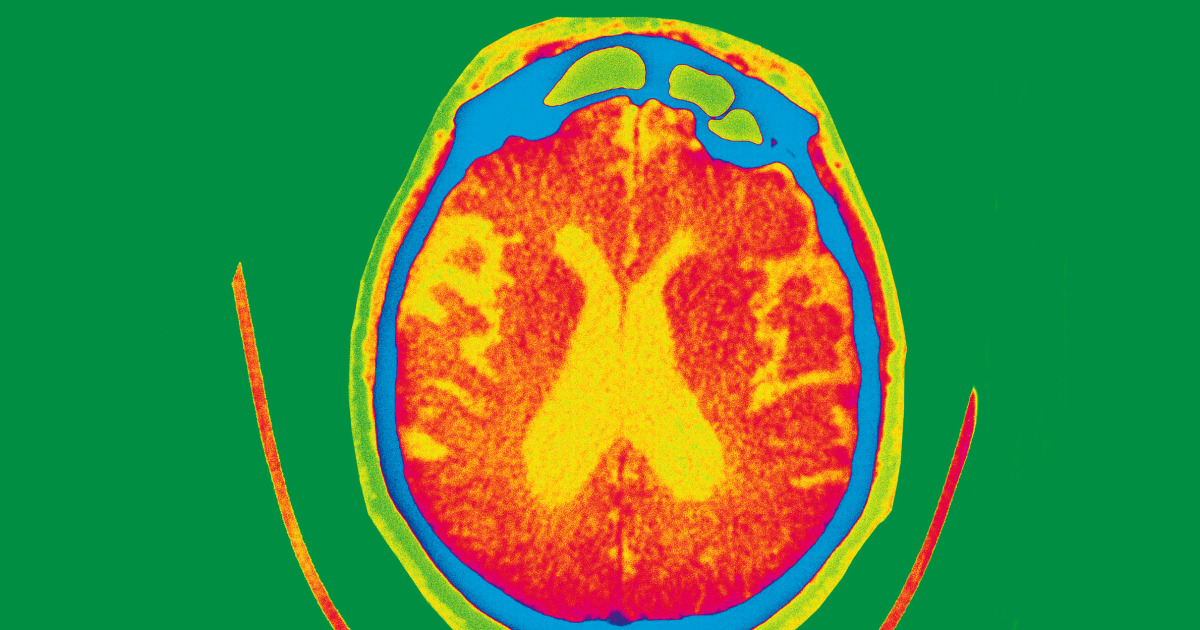Scientists discover an underlying genetic cause for 15% of Alzheimer's cases

🌈 Abstract
The article discusses the identification of a genetic form of late-onset Alzheimer's disease, where individuals inherit two copies of the APOE4 gene. This genetic form is found to be an underlying cause of the disease, rather than just a risk factor, and can lead to symptoms appearing 7-10 years earlier than in other Alzheimer's cases.
🙋 Q&A
[01] Genetic Form of Late-Onset Alzheimer's
1. What is the key finding of the research discussed in the article?
- Researchers have identified a genetic form of late-onset Alzheimer's disease, where individuals inherit two copies of the APOE4 gene.
- This genetic form is an underlying cause of the disease, rather than just a risk factor.
- Symptoms can begin 7-10 years sooner in people with two copies of the APOE4 gene compared to other Alzheimer's cases.
2. What percentage of Alzheimer's patients carry two copies of the APOE4 gene?
- An estimated 15% of Alzheimer's patients carry two copies of the APOE4 gene.
3. How does this genetic form differ from previously known genetic forms of Alzheimer's?
- Previously, genetic forms of Alzheimer's were thought to only be the types that strike at much younger ages, accounting for less than 1% of all cases.
- This newly identified genetic form affects people later in life, unlike the rare, early-onset forms.
4. What are the implications of this finding for Alzheimer's research and treatment?
- It is critical to develop treatments that specifically target the APOE4 gene.
- Some doctors are hesitant to prescribe the drug Leqembi to people with two copies of the APOE4 gene due to a higher risk of side effects.
- Researchers need to understand why not everyone with two APOE4 genes develops Alzheimer's symptoms.
[02] APOE Gene and Alzheimer's Risk
1. How does the APOE gene affect Alzheimer's risk?
- The APOE gene has three main variants: APOE3, APOE2, and APOE4.
- APOE4 has long been known as the biggest genetic risk factor for late-onset Alzheimer's, with two copies being riskier than one.
- About 2% of the global population is estimated to have inherited a copy of APOE4 from each parent.
2. How do the different APOE variants affect Alzheimer's risk?
- APOE3 is the most common variant and appears to neither increase nor decrease Alzheimer's risk.
- APOE2 provides some protection against Alzheimer's.
- APOE4 is the risk factor, with two copies being more problematic than one.
3. What are the implications of the APOE4 gene for Alzheimer's research and treatment?
- Researchers aim to develop gene therapy or drugs to specifically target APOE4.
- It is crucial to understand APOE4's effects in diverse populations, as most research has been done on people of European ancestry.
- Gene tests for APOE4 are typically used to evaluate eligibility for the drug Leqembi or for enrollment in Alzheimer's prevention studies.